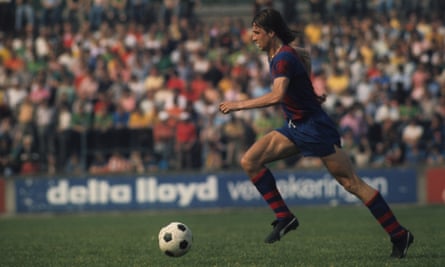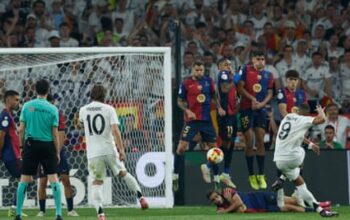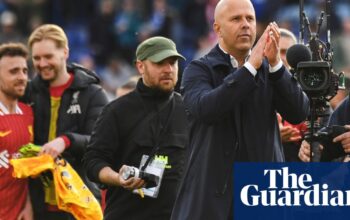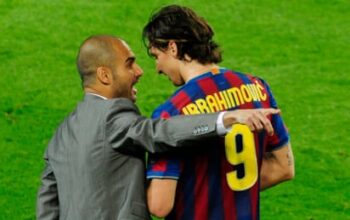Covering Manchester United these days feels a little like being a character in Silent Witness: every week you end up writing a postmortem. Their Sunday defeat at Tottenham was an engaging if bitty affair that finished 1-0 largely because the low quality of defending on show was compensated for by the low level of attacking. It was fun in its way, but it didn’t feel a lot like Premier League football.
It also meant United dropped to 15th in the table, having won just four of 14 league games under Ruben Amorim. Under Erik ten Hag this season, United were taking 1.22 points per game; under Amorim that’s down to 1.00. Nobody was under any illusions about the scale of the task he was taking on, but four months after Amorim took the job it would be very difficult to identify any concrete signs of progress. There has been the resilience of the performance in the league at Anfield, in the FA Cup at the Emirates, and not a lot else.
Amad Diallo has impressed, raising further questions about why he was used so sparingly by Ten Hag, but he is now out for the season after sustaining an ankle injury in training. The starting XI on Sunday featured perhaps three players who feel as though they might be part of the long-term future of the club, and even that’s being slightly generous given Patrick Dorgu has only just arrived and thus hasn’t had time to be afflicted by the general malaise. In January, United seemed willing to sell one of the other two, Alejandro Garnacho, if only because as an academy product he would represent pure profit in the Premier Leagues profit and sustainability rules (PSR), thus allowing them to further restock the squad.
This, of course, is a large part of Amorim’s problem. The squad he has inherited is a shambles. And while it’s legitimate to wonder why Casemiro is still clanking around the United midfield, a glance at United’s bench, which featured eight teenagers plus Victor Lindelöf, makes clear just how few options Amorim had. It’s probable now that United will suffer their first lower-half finish since 1989-90 – the season when, by legend at least, Mark Robins’s winner at Nottingham Forest in the FA Cup third round kept Alex Ferguson in the job – but nobody should think that is the fault of anybody but the club’s owners.
This week will mark a year since Jim Ratcliffe bought just over quarter of the club and the right to run the football operations from the Glazers. He was greeted with optimism; he is local and logic said nobody could be as bad as the last lot. Since then he has imposed a bevy of cost-cutting measures – many bafflingly petty. He has done away with discounts for pensioners and children and installed an array of expensive executives. Dan Ashworth was installed as sporting director, presumably to try to ensure the sort of coordinated approach that has been so obviously lacking since Ferguson left in 2013, only to leave after five months, seemingly for opposing the appointment of Amorim.
The 40-year-old’s record in Portugal makes clear he is a gifted coach, but that does not make him the right coach for United. He reiterated again on Sunday that he will keep playing his 3-4-3, that this is a season that almost has to be written off as the players familiarise himself with the system. But he must know that most of this squad cannot play it. He also must realise that there will be no great infusion of cash to rebuild the squad in the summer; United are already under pressure to avoid breaching PSR regulations.
Even with a fair wind, as Gary Neville said on the It Was What It Was podcast, it would be an enormous task for Amorim to transform the tactical identity of a club that has almost never previously played with a back three. And that leads to questions: just how certain are the hierarchy that Amorim is the right man? Defining the philosophy should be a job for a sporting director, who would then recruit players and coaches accordingly. The absence of such a guiding hand has been one of the biggest problems for United for over a decade – then they appoint one and immediately ignore his advice.
And the wind is not fair. Fans are becoming frustrated by the lack of progress, which on the one hand is hard on Amorim, but on the other is readily understandable, given the way they are being squeezed by the club, paying extra to watch the worst football United have produced in 35 years.
The danger is that, even if Amorim is the right man, his reputation will be so tarnished by the end of the season that he will never be able to inspire the belief successful management requires. This is a mess with no easy solutions.
after newsletter promotion
On this day …

After losing a vote for the Ajax captaincy in the summer of 1973, Johan Cruyff decided he was done. He had won three European Cups with the Amsterdam club, but he needed to stretch his wings. As Spain relaxed its regulations on foreigners, Real Madrid sniffed around, but it was Barcelona who pounced to reunite Cruyff with the Dutch coach who had so inspired him at Ajax, Rinus Michels. The deal was agreed on 13 August but that breached Dutch regulations which stated that all transfers should happen in July. It took two and half months for the bureaucracy to be resolved, and Cruyff finally made his debut on 28 October.
He joined a team just beginning to find its feet after winning only one of their opening five games of the season. They didn’t lose again until after their first league title in 14 years had been decided. But the high point, without question, came on 17 February 1974, when Barcelona went to the Bernabéu for the Clásico. Cruyff ran the game, setting up three goals and scoring one, showing remarkable balance and strength to beat two players in the edge of the box, as Barça won 5-0.
-
This is an extract from Soccer with Jonathan Wilson, a weekly look from the Guardian US at the game in Europe and beyond. Subscribe for free here. Have a question for Jonathan? Email [email protected], and he’ll answer the best in a future edition.
Source: theguardian.com


